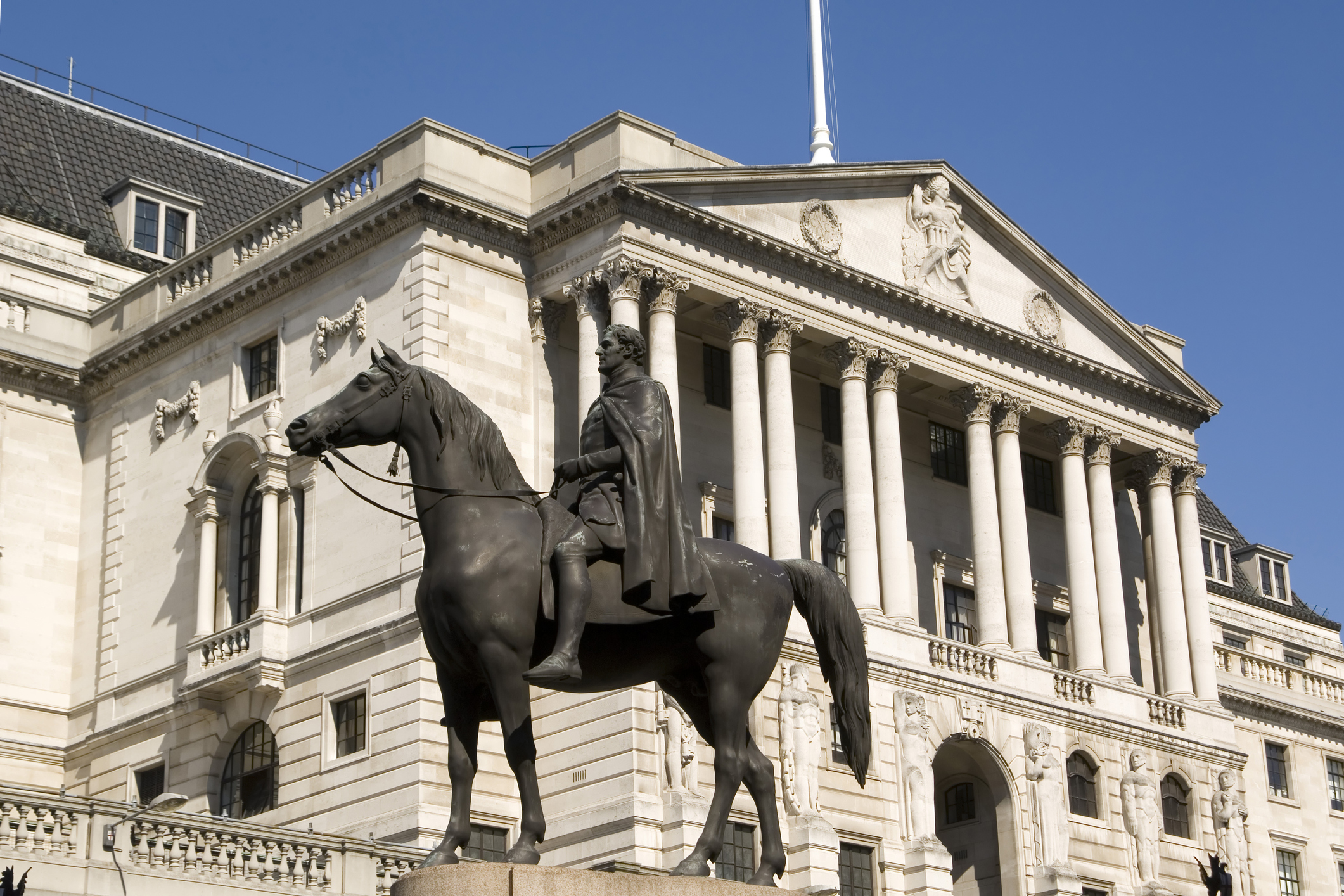UK wages grow at a record pace
The latest UK wages data will add pressure on the BoE to push interest rates even higher.


Get the latest financial news, insights and expert analysis from our award-winning MoneyWeek team, to help you understand what really matters when it comes to your finances.
You are now subscribed
Your newsletter sign-up was successful
Want to add more newsletters?
UK wages grew at a record pace in the quarter through June, making it more likely the Bank of England (BoE) will hike interest rates again when it next meets.
Annual growth in regular pay, excluding bonuses, was 7.8% between April to June 2023 - the highest regular annual growth rate since records began in 2001.
Annual average regular pay growth for the private sector was 8.2%, the largest annual growth rate seen outside the pandemic.
Try 6 free issues of MoneyWeek today
Get unparalleled financial insight, analysis and expert opinion you can profit from.

Sign up to Money Morning
Don't miss the latest investment and personal finances news, market analysis, plus money-saving tips with our free twice-daily newsletter
Don't miss the latest investment and personal finances news, market analysis, plus money-saving tips with our free twice-daily newsletter
Annual growth including bonuses was 8.2% in the same time period. While this is good news for consumers, it introduces a fresh headache for the BoE’s rate-setting Monetary Policy Committee (MPC).
“Finally, we’ve stopped getting poorer with each passing month, as wages have returned to growth after inflation,” says Sarah Coles, head of personal finance at Hargreaves Lansdown. “However, this is the bright spot among a fairly dismal employment picture, and even this could bring more bad news further down the line.
We look into what effect this data will have on interest rates.
How do rising wages affect interest rates?
The BoE base rate is currently sitting at a 14-year high of 5.25%. While the jump in wages will be a big relief for consumers, “it will be far less welcome for the Bank of England”, says Coles.
“Since the period of higher inflation started, there was always the risk that wages would need to rise to help people make ends meet and that it would end up fuelling even more inflation.
The figures could mean “we may well see another rate rise when the committee next meets,” adds Coles. “This raises the prospect that it could exacerbate growing weakness in the jobs market.”
‘’The blast of cold air from higher interest rates is being felt in the labour market, with unemployment ticking up but the risk is that the growth in wages will continue to fan the fires of inflation,” adds Susannah Streeter, head of Money and Markets at Hargreaves Lansdown. “With the highest annual wage growth recorded in June since records began in 2001, another rate hike from the Bank of England looks bolted on in September.”
Unemployment rate grows
Meanwhile, the unemployment rate between April to June increased by 0.3% to 4.2% – its highest level since 2021.
“Inactivity due to long-term sickness rose to a record high and job vacancies fell by 66,000, dropping for the 13th consecutive period,” says Victoria Scholar, head of investment at interactive investor.
“Amid the macroeconomic storm clouds, businesses have become increasingly cautious about their hiring plans, reducing the level of vacancies which has made it more difficult for workers to find jobs, raising the unemployment rate,” adds Scholar.
“On top of that there’s a record number of people unable to work due to long-term sickness, perhaps pushed up patient backlogs and other pressures on the NHS.”
Join us at the MoneyWeek Summit on 29.09.2023 at etc.venues St Paul's, London.
Tickets are on sale at www.moneyweeksummit.com
MoneyWeek subscribers receive a 25% discount.
Get the latest financial news, insights and expert analysis from our award-winning MoneyWeek team, to help you understand what really matters when it comes to your finances.
Nic studied for a BA in journalism at Cardiff University, and has an MA in magazine journalism from City University. She has previously worked for MoneyWeek.
-
 Do you face ‘double whammy’ inheritance tax blow? How to lessen the impact
Do you face ‘double whammy’ inheritance tax blow? How to lessen the impactFrozen tax thresholds and pensions falling within the scope of inheritance tax will drag thousands more estates into losing their residence nil-rate band, analysis suggests
-
 Has the market misjudged Relx?
Has the market misjudged Relx?Relx shares fell on fears that AI was about to eat its lunch, but the firm remains well placed to thrive
-
 How have central banks evolved in the last century – and are they still fit for purpose?
How have central banks evolved in the last century – and are they still fit for purpose?The rise to power and dominance of the central banks has been a key theme in MoneyWeek in its 25 years. Has their rule been benign?
-
 'Governments are launching an assault on the independence of central banks'
'Governments are launching an assault on the independence of central banks'Opinion Say goodbye to the era of central bank orthodoxy and hello to the new era of central bank dependency, says Jeremy McKeown
-
 Why investors can no longer trust traditional statistical indicators
Why investors can no longer trust traditional statistical indicatorsOpinion The statistical indicators and data investors have relied on for decades are no longer fit for purpose. It's time to move on, says Helen Thomas
-
 The Bank of England can’t afford to hike interest rates again
The Bank of England can’t afford to hike interest rates againWith inflation falling, the cost of borrowing rising and the economy heading into an election year, the Bank of England can’t afford to increase interest rates again.
-
 Interest rates held at 5.25% again
Interest rates held at 5.25% againThe Bank of England has kept rates at 5.25% again, in a widely anticipated move. We look at what it means for your money - and what the Bank’s next move could be
-
 Bank of England holds interest rates at 5.25%
Bank of England holds interest rates at 5.25%The Bank has kept rates at 5.25%, ending its run of 14 consecutive increases. We look at what it means for your money - and what the Bank’s next move could be
-
 UK inflation slumps to 6.7% in August
UK inflation slumps to 6.7% in AugustThe latest data shows inflation slowed faster than expected in August, a welcome relief for consumers and the Bank of England
-
 Trapped in a time of zombie government
Trapped in a time of zombie governmentIt’s not just companies that are eking out an existence, says Max King. The state is in the twilight zone too.
